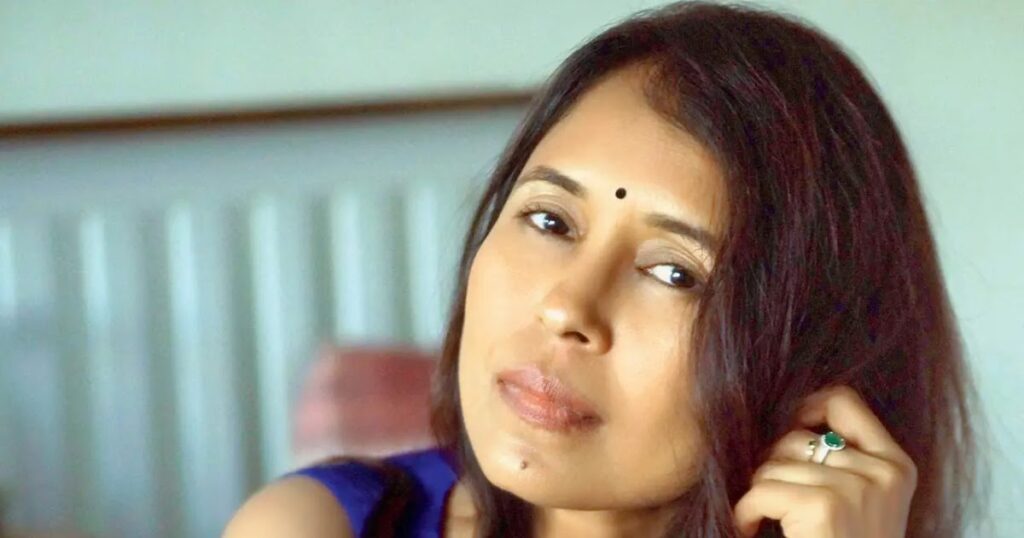
As Village Rockstars 2 premieres at the Berlin Festival, Nation Award-winning filmmaker Rima Das opens up working on a folk-horror story for her next, and why financial support for independent filmmaking in India needs to go beyond just lip service
Priyanka Sharma (MID-DAY; February 16, 2025)
It’s time for Rima Das 2.0. The National Award filmmaker is currently at the coveted Berlin International Film Festival for the premiere of her latest work, the Assamese movie, Village Rockstars 2. The festival darling lets us in on a new resolution when we speak to her—she is ready to turn over a new leaf. “I have realised going to festivals is not enough. Now, my main aim is that my work reaches more people,” she says.
In her over a decade-long career, Das has created an enviable filmography—her breakout film Village Rockstars, Bulbul Can Sing to Tora’s Husband—and now the sequel to her National Award-winner, which has already travelled to several national and international festivals.
“At Busan Film Festival last year, a producer from Singapore told me, ‘Rima, I think this is the only sequel of an independent film. We haven’t had any other sequel to an indie film before’.” Das laughs as we mention that her film couldn’t have come at a better time, as sequels seem to be the latest obsession.
“While making Village Rockstars [2018], I never thought of a sequel. But while editing it, it did strike me that the story has a natural progression and another film can be made. But I thought if I took it to festivals, how will they react to a sequel? Also, for the audiences who haven’t watched the first part, will the title Village Rockstars 2 work? Then, I thought about the long-term value of a story and that’s why I decided to make the sequel.”
Village Rockstars is about Dhunu, a 10-year-old girl, who dreams of buying a guitar and is saving up for it. However, when calamity hits her village, she must re-evaluate her priorities. Part 2 revisits the life of Dhunu, seven years after the events of the last film.
The filmmaker began working on the film, on which she also serves as the writer, cinematographer and co-producer, in 2020. But it ended up consuming Das’ time more than she anticipated.
“In 2020, I wanted to start something with Tillotama Shome. Then, the pandemic happened. I felt like I was in a cocoon, so I started making Tora’s Husband and Village Rockstars 2 simultaneously, but there was a lot of physical, mental trauma because of the pandemic. I lost my father. So, to finish both the films took a long time. I had to rewrite and re-shoot portions of Village Rockstars 2. It took me four years to finish the film,” she shares. As rewarding as making Village Rockstars 2 was, it also left the filmmaker feeling stagnated. Das knew it was time for a reboot. “I had been shooting in the same location for years because Village Rockstars and Bulbul Can Sing were shot in the same area, while Tora’s Husband was shot nearby. I stopped enjoying it. So, during that time I started developing other ideas because I felt like doing something new,” she says.
Now brimming with ideas, the filmmaker is having a party. “I am writing something set in Mumbai, and it’s folk horror. When I look around, I see a lot of stories. Then, I feel like telling these stories is more important than making something perfect.”
With creative expansion on her mind, Das wants to enter unfamiliar territories. “Now, I also want to do commercial and semi-commercial films. Not being officially trained in filmmaking, my perception and knowledge of art is probably different from other filmmakers. Keeping the essence of cinema intact, I want my films to be accessible and reach a wider audience. Some films I think feel very arty. If I am making a Village Rockstars, I have a message to tell. If only cinephiles are watching it, it’s not enough for me. I want my films to reach marginalized sections or the [regular] audience. That is success for me. I don’t like my films to be a piece of art that is consumed by only a section of the audience. This wasn’t exactly on my mind when I made Village Rockstars. It was made without music and I thought the way it had shaped up was for a foreign audience but when it was released in India and I saw people loving it, I realized there are no boundaries to art.”
What also calls out to the filmmaker today is the need to embrace collaborations. Since the beginning of her career, Das has made movies largely by herself— from writing to producing. “I am looking for more collaborators, who are like-minded. I don’t want to be in the lonely place of doing everything by myself. I know when the time is right, the right kind of people will align with my vision and understanding of cinema.”
Making movies is as much about having talent as it’s about finding people who believe in it. It becomes particularly difficult to find believers of stories that don’t conform. Das, one of the biggest success stories in India’s independent space believes, “If you look at our audience, it should not be difficult to be an independent filmmaker in India. But there aren’t many forces to support it. There is a lot of lip service. If only five people, who are big producers, can support the scene, it can drastically change. But that’s not happening and I don’t know why. We look at old architecture and marvel at it, but nothing new is being built. Good art, poetry, and film are as important as good architecture. When I hear about the box office, it is only about two per cent of our population watching a film that is called a huge success. So, when we spend Rs. 50 lakh to a crore on an indie film, the recovery in India is very easy. You just need to find your audience. But there is no support.”
On this note, Das registers praise for actor-producer couple Richa Chadha and Ali Fazal, who made their production debut with the marvellous Girls Will Be Girls. “We need more people like Richa and Ali. Look how they supported an independent filmmaker [Shuchi Talati] and a beautiful film got so much visibility.”
Beyond that, Das believes one has to just be at it. “These problems have always been there in the independent space. Films are a catharsis for me. Every time I am doing something, I am creating opportunities for people, whether the number is 10 or 40.”

